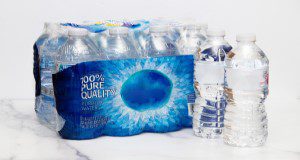Private well users are responsible for the management and protection of their wells. This new 4-page EDIS publication is for Florida homeowners who are interested in learning more about their well-water system and understanding how to properly shock, or disinfect, the well if there is evidence of drinking water contamination. Written by Yilin Zhuang and Mary Lusk, and published by the UF/IFAS Department of Soil and Water Sciences.
https://edis.ifas.ufl.edu/ss700
Tag: Waterborne Pathogens
Onsite Sewage Treatment and Disposal Systems: Viruses (SL351/SS553)
 Keeping disease-causing microorganisms out of groundwater used for drinking water supplies is important to protect human health. This 7-page fact sheet characterizes the behavior of viruses in septic systems and the soil drain field and summarizes what we know about the extent and character of groundwater contamination with viruses emanating from septic systems. Written by Mary Lusk, Gurpal S. Toor, and Tom Obreza, and published by the UF Department of Soil and Water Science, October 2011.
Keeping disease-causing microorganisms out of groundwater used for drinking water supplies is important to protect human health. This 7-page fact sheet characterizes the behavior of viruses in septic systems and the soil drain field and summarizes what we know about the extent and character of groundwater contamination with viruses emanating from septic systems. Written by Mary Lusk, Gurpal S. Toor, and Tom Obreza, and published by the UF Department of Soil and Water Science, October 2011.
http://edis.ifas.ufl.edu/ss553
Onsite Sewage Treatment and Disposal Systems: Bacteria and Protozoa (SL350/SS552)

Keeping disease-causing microorganisms out of groundwater used for drinking water supplies is important to protect human health.This 7-page fact sheet reports the sources of bacteria and protozoa in wastewater, discusses diseases associated with drinking water contaminated with wastewater, and then details their fate in septic systems. Written by Mary Lusk, Gurpal S. Toor, and Tom Obreza, and published by the UF Department of Soil and Water Science, July 2011. (Photo by Tara Piasio)
http://edis.ifas.ufl.edu/ss552
FSHN06-2/FS136 Food Safety on the Farm: Good Agricultural Practices and Good Handling Practices—Water
Revised! FSHN06-2, a 5-page fact sheet by Keith R. Schneider, Renée Goodrich-Schneider, and Douglas L. Archer, is part of the Food Safety on the Farm series. It focuses on GAPs and GHPs relating specifically to water use. Includes references. Published by the UF Department of Food Science and Human Nutrition, April 2010.
http://edis.ifas.ufl.edu/fs136
SL259/SS482 Indicator Organisms: What Every Floridian May Want to Know about Microbiological Water Quality
SL-259, a 3-page fact sheet by Max Teplitski and J. Dwain Butler, is designed to help the reader interpret the results of a microbiological water test. Includes references. Published by the UF Department of Soil and Water Sciences, March 2008.
http://edis.ifas.ufl.edu/SS482
SL259/SS482 Indicator Organisms: What Every Floridian May Want to Know about Microbiological Water Quality
SL-259, a 3-page fact sheet by Max Teplitski and J. Dwain Butler, helps homeowners interpret the results of a microbiological water test. Includes references. Published by the UF Department of Soil and Water Sciences, March 2008.
http://edis.ifas.ufl.edu/SS482
